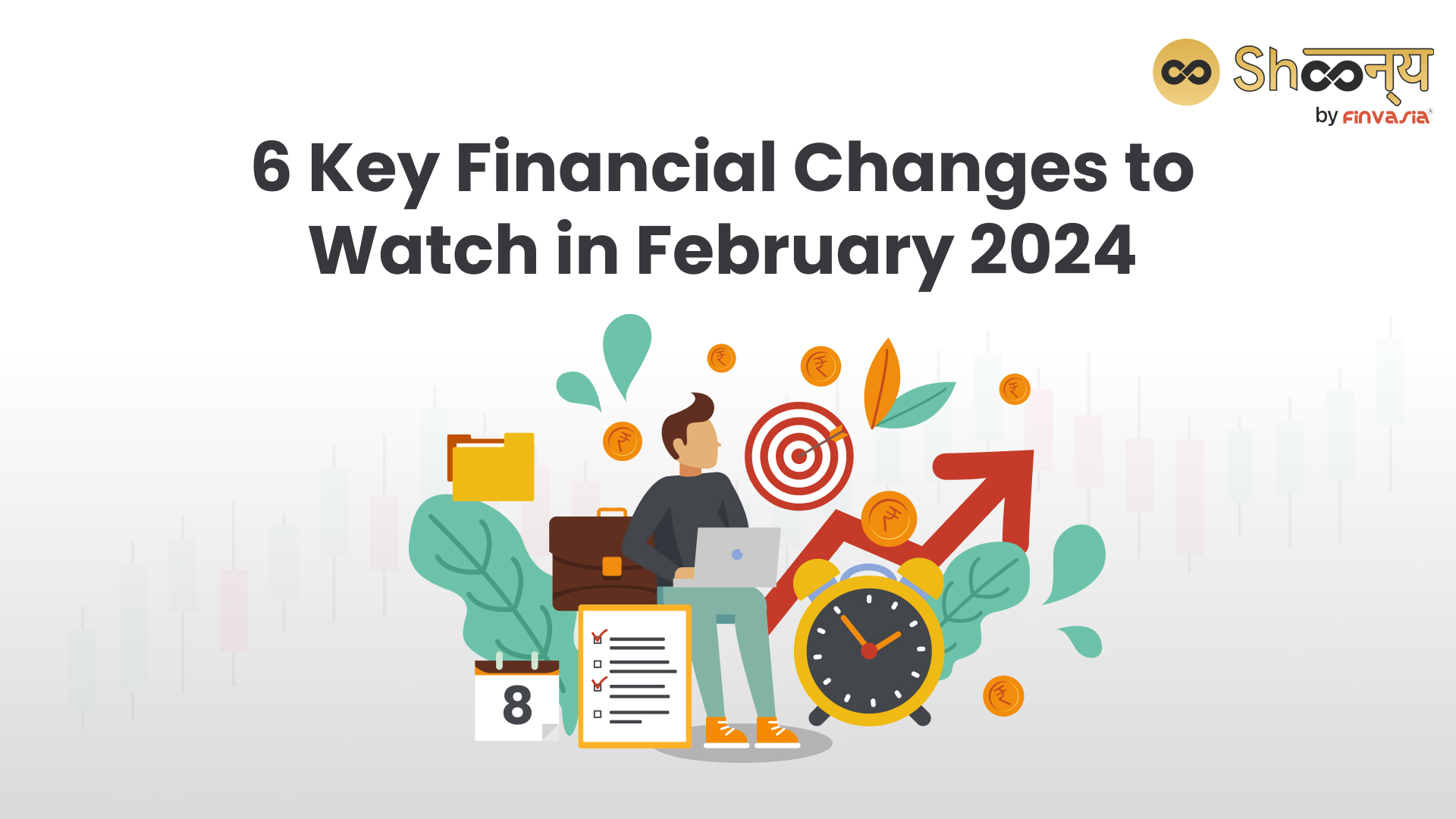6 Key Financial Changes: February 2024 Updates & Implications

As we all wait for the announcement of the interim budget 2024, there are multiple other financial transformations that are about to take place in february. The month marks the onset of significant financial shifts and regulatory updates, promising to reshape the financial environment for the year 2024. From amendments in tax regulations to alterations in banking protocols, here’s a comprehensive rundown of the key financial changes slated for February.
Key Highlights
- Interim Budget 2024 Review: The interim Budget might not have any major surprises, but it could still affect your finances. It’s worth paying attention to any changes in tax rebates and deductions.
- IMPS Rule Update: From February 1, you might be allowed to transfer up to Rs 5 lakh between bank accounts without needing to add the recipient’s details first.
- Tax Planning Reminder: With the end of the financial year approaching, it’s time to start planning your taxes. Investing in options like PPF, NPS, and health insurance can help you save money.
- RBI’s Repo Rate Decision: The Reserve Bank of India’s decision on interest rates could impact your loans and savings. Keep an eye out for any changes in February.
- Sovereign Gold Bond Subscription: You’ll have the chance to invest in Sovereign Gold Bonds soon, which could be a good way to diversify your investments and protect against economic uncertainties.
- ICICI Bank’s New Fee: ICICI Bank is introducing a new fee for international transactions and transactions with foreign merchants. This could change how you use your credit card abroad.
February is a month of financial changes, with new rules and opportunities emerging. Understanding these changes can help you make the right decisions about your money.
Detailed Overview of 6 Key Financial Changes
- Interim Budget 2024 Impact
Although Finance Minister Nirmala Sitharaman hinted that the interim Budget wouldn’t have any big surprises, there might still be some changes. Last year, the government increased the tax rebate limit from Rs 5 lakh to Rs 7 lakh under the new tax rules.
With fingers crossed, let us hope for something better for middle-class families.
- New IMPS Rules
Starting from February 1, customers may be able to transfer up to Rs 5 lakh between bank accounts without having to add beneficiary details using the Immediate Payment Service (IMPS).
As per the National Payments Corporation of India (NPCI) circular dated October 31, 2023, all banks must comply with this directive for initiating and accepting fund transfers via mobile number and bank name on all IMPS channels by January 31.
Previously, IMPS transfers required recipient details like mobile numbers, bank account names, account numbers, and IFSC codes. This new process aims to simplify transactions by eliminating the need for users to input cumbersome beneficiary details. Now, users can execute fund transfers with just the recipient’s mobile number and bank name.
Note– If multiple bank accounts are linked to a single mobile number, the beneficiary bank will credit the primary account. The primary account is identified with the customer’s consent. If consent is not provided, the bank will decline the transaction.
- Tax Planning Recommendations
Start planning your taxes early by investing in options that offer tax benefits. This can help you save money in the long run.
It’s important to plan your taxes throughout the year, not just at the end. If you haven’t started yet, it’s a good idea to do it now because the end of the financial year is only two months away, on March 31. Think about your financial goals and invest wisely. You can save on taxes by investing in things like Public Provident Fund (PPF), National Pension Scheme (NPS), Sukanya Samriddhi Yojana (SSY), monthly investments in equity-linked savings schemes (ELSS), Employees Provident Fund (EPF), or paying life insurance premiums.
- RBI Policy Effects
Keep an eye on the Reserve Bank of India’s decisions, as they can affect how much you pay for loans and how much interest you earn on savings.
The Reserve Bank of India (RBI) didn’t increase the repo rate in its announcements from April, June, August, October, and December. The repo rate stayed at 6.5 percent during these times.
We’re waiting to see if the RBI will keep the repo rate the same or raise it in February to control inflation.
If the RBI does increase interest rates, banks will likely raise the interest rates on home loans and other loans linked to the repo rate, as per the loan agreements.
- Gold Bond Strategy
Investing in Sovereign Gold Bonds could be a good way to protect your money during uncertain times.
The new series of Sovereign Gold Bonds (SGB), known as SGB 2023-24 Series IV, will be available for subscription from February 12 to February 16. This will be the final opportunity to invest in the SGB series for the 2023-24 period.
SGBs have a tenure of eight years, with the option for premature redemption after the fifth year, which can be exercised on the date when interest is payable.
SGBs as an ideal way to invest in gold, especially for those willing to hold the investment until maturity, which is eight years. Allocating around 5-10 percent of one’s portfolio to gold provides a buffer during economic crises compared to investments in stocks.
- Credit Card Changes
ICICI Bank’s new fee for international transactions might make you rethink how you use your credit card. Be aware of any extra charges when making purchases abroad.
Conclusion
Stay updated about the financial changes happening in February so you can make the best decisions for your money. Planning ahead and understanding these changes, especially Budget 2024, is important to help you plan your financial future.
Source- moneycontrol.com
______________________________________________________________________________________
Disclaimer: Investments in the securities market are subject to market risks; read all the related documents carefully before investing.








